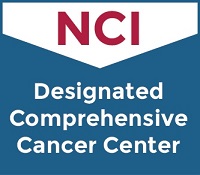Molecular and Structural Biology
Program Co-Leader: David J Weber, PhD
Program Co-Leader: France Carrier, PhD
See the complete list of Molecular and Structural Biology investigators.
The scientific goals of the Molecular and Structural Biology (MSB) Program are to elucidate the molecular mechanisms and cellular processes that are altered in cancer and to translate these basic scientific findings towards developing novel strategies for treating cancer. The MSB Program is composed of members from many Departments in the Schools of Medicine and Pharmacy at University of Maryland Baltimore and University of Maryland College Park. Together, they pursue research organized along three themes:
- DNA damage, repair and genomic instability – Characterize how defects in DNA repair and checkpoint pathways lead to genomic instability and the initiation or progression of carcinogenesis.
- Dysregulation of transcriptional and posttranscriptional control of gene expression – Determine how defects in transcriptional and posttranscriptional processes lead to inappropriate regulation of protein expression in cancer.
- Cancer cell signaling – Delineate how signaling pathways (e.g., oncogenic, tumor suppressor, etc.) are deregulated in cancer, and identify specific biomolecules that can be targeted for suppressing cancer.
Scientists in the MSB Program interact with UM Marlene and Stewart Greenebaum Comprehensive Cancer Center (UMGCCC) researchers and clinicians to address mechanistic questions in cancer biology and to design and test new anticancer strategies. These collaborative efforts drive one of the MSB Program’s major goals to increase the number of high-impact discoveries in cancer biology, with the ultimate goal of moving these findings towards clinical applications.
Through the use of cDNA array, genomics and proteomics technology, MSB Program researchers identify and characterize proteins and genes of interest. Solution and/or crystal structures of relevant polypeptides and proteins are determined and, once solved, used as substrates for computer assisted drug design and screening (CADDS) to identify small molecule site-specific inhibitors and/or activators. These lead compounds are to be tested in preclinical studies and, where appropriate, developed for Phase I clinical trials carried out in the UMGCCC. This is a highly effective approach to new drug discovery, and has already been used successfully to identify several lead compounds that disrupt the binding of p53 with S100B, resulting in the reactivation of wild type p53 function.
The compounds were discovered first by solving the solution structure of the interface between these two proteins and then, based upon CADDS results and database screening, identifying small molecules potentially capable of disrupting that interface. The Program has also supported the Center’s initiative to develop a proteomics shared service for protein identification and, for structural determinations, has encouraged its members to utilize the School of Medicine NMR Center, which is directed by a member of the MSB Program and partially supported by the Cancer Center and houses 500 and 600 MHz machines and will contain a recently contracted 800 MHz machine as well.
The MSB Program is also assisting UMGCCC with its collaborative effort with the School of Pharmacy to recruit and equip a crystallographer and to establish a University-wide X-ray crystallography center. The Program strongly supports the development of intra- and inter-programmatic collaborations and the formation of translational research initiatives. The MSB Program meets monthly to discuss ongoing projects and Cancer Center affairs. Program members utilize all of the shared services offered by the Center.


